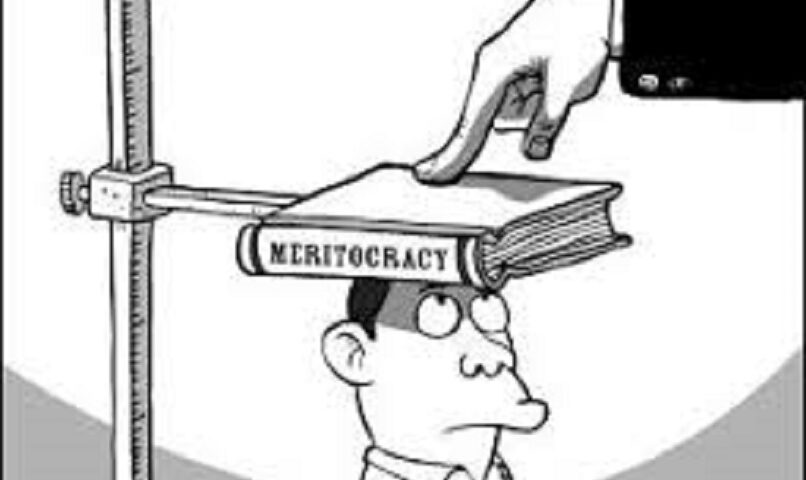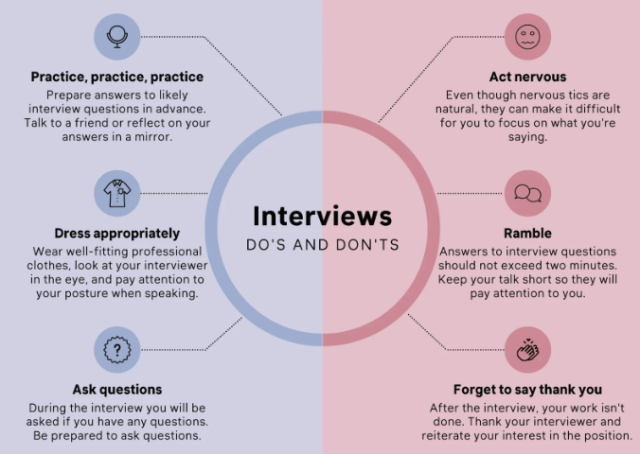Thirteen Critical Things to Check Before Accepting an Offer Letter
By: Javid Amin | 05 Aug 2025
Why Your Offer Letter Deserves a Second Look
Getting a job offer is always exciting—whether it’s your first job or your fifth. You’ve cleared the interviews, impressed the hiring managers, and now the company wants you. But before you sign that offer letter and start imagining your new desk, stop. Take a deep breath. And read between the lines.
Why?
Because your offer letter is more than just a formality—it’s a legally binding agreement between you and your employer. It defines what you’ll get, what they expect, and what your working life is going to look like. Miss a detail today, and you might end up regretting it tomorrow.
This article is your ultimate guide to understanding the 13 most important things to check before accepting an offer letter—explained simply, thoroughly, and with real-world relevance. Bookmark this. Share it with friends. Because this checklist could save your career and peace of mind.
01. Designation – The Job Title That Can Make or Break Your Future
Why It Matters:
Your designation isn’t just a label—it impacts your authority, responsibilities, and even your resume for future jobs. An ambiguous or downgraded title could hurt your career growth.
What to Check:
-
Does the title match what was discussed in the interview?
-
Is it aligned with your experience and industry norms?
-
Is it internally respected within the company?
Pro Tip:
Avoid generic designations like “Executive” or “Associate” unless it was clearly explained. Ask for clarity: Is a “Consultant” higher than a “Manager” in their hierarchy?
02. Salary Details & CTC Breakdown – It’s More Than Just the Number
Why It Matters:
The number on your offer letter—often termed CTC (Cost to Company)—can be misleading. It includes every rupee the company spends on you, including taxes, bonuses, and sometimes even tea and snacks!
What to Check:
-
Gross vs. Net Salary – What will you actually take home?
-
Variable Pay – Is part of your salary performance-linked?
-
Hidden Deductions – Are there deductions for PF, gratuity, or insurance?
Pro Tip:
Always ask for a detailed CTC breakup. Compare the fixed and variable components. Use online calculators to estimate your in-hand salary.
03. Leave Policies – Your Right to Rest
Why It Matters:
Every employee needs a break—whether it’s for a vacation, health reasons, or an emergency. Your company’s leave policy tells you how much flexibility you’ll have.
What to Check:
-
Number of Paid Leaves, Casual Leaves, and Sick Leaves
-
Carry Forward or Encashment rules
-
Unpaid Leave policy
-
Maternity/Paternity Leave
Pro Tip:
A good company offers at least 20–24 leaves per year. Ask about leave approval procedures—do you need a month’s notice just to take a week off?
04. Working Hours & Working Days – Will You Have a Life Outside Work?
Why It Matters:
Flexible work timings sound good until you’re working 14 hours a day. Knowing your actual working hours and weekly schedule is crucial for work-life balance.
What to Check:
-
Official Work Timings – 9 to 5? 10 to 7? Shift-based?
-
Remote/Hybrid Options
-
Work from Home (WFH) eligibility
-
Number of working days per week – 5 or 6?
Pro Tip:
Ask if there’s expectation to stay beyond work hours. Is overtime compensated or silently expected?
05. Health Insurance & Medical Coverage – Don’t Wait for a Crisis to Learn the Fine Print
Why It Matters:
Medical emergencies don’t come with warnings. A strong health insurance plan protects you and your dependents without draining your finances.
What to Check:
-
Who is covered? Just you or your family too?
-
Coverage amount
-
Network hospitals
-
Pre-existing disease clauses
-
Is there a waiting period?
Pro Tip:
Ask for a policy document. Don’t just rely on HR’s verbal assurance. It’s your right to know what you’re covered for.
06. Probation Period – You’re Still on Trial
Why It Matters:
During the probation period, your job isn’t permanent. You can be let go without much notice or justification. Understand this phase clearly.
What to Check:
-
Duration of the probation – 3, 6, or 12 months?
-
Evaluation criteria – How will they assess your performance?
-
Benefits during probation – Do you get leaves and bonuses?
Pro Tip:
Check if confirmation is automatic or based on a formal review. Get the process in writing.
07. Notice Period – The Exit Route Could Be a Trap
Why It Matters:
A 90-day notice period may sound standard—but it can trap you in jobs you want to leave or prevent you from switching roles quickly.
What to Check:
-
Exact notice period length
-
Buyout options – Can you pay to shorten it?
-
Relieving policy – Is early release possible?
-
Resignation acceptance process
Pro Tip:
If you’re offered 60-90 days, negotiate. Some companies use long notice periods to reduce attrition, not to retain talent.
08. Perks and Benefits – The Hidden Gold in Your Offer
Why It Matters:
Sometimes, a slightly lower salary can be offset by great employee perks like free meals, learning programs, transport allowance, or wellness benefits.
What to Check:
-
Meal coupons or subsidized cafeteria
-
Cab services or travel reimbursements
-
Learning and certification support
-
Free fitness memberships, mental health services
Pro Tip:
Ask for a benefits handbook or a detailed email from HR. Many companies offer optional benefits that you have to opt in for.
09. Bonus, Gratuity & Pension – Your Long-Term Financial Cushion
Why It Matters:
Bonuses and retirement benefits add long-term value to your job. Some may not reflect in your monthly salary but can be a big help later.
What to Check:
-
Annual performance bonus – is it guaranteed or conditional?
-
Gratuity – Are you eligible? Typically after 5 years.
-
Pension or Provident Fund (PF) – Is the company contributing?
Pro Tip:
Companies with strong retirement policies tend to have employee-centric cultures. These are often overlooked but vital.
10. FNF (Full and Final) Settlement Policy – Don’t Get Burned at Exit
Why It Matters:
When you leave a company, your final dues—salary, bonus, leave encashment—should be settled transparently and fairly. The FNF process decides that.
What to Check:
-
Time taken for FNF – usually 30–45 days
-
Documents required
-
Dispute resolution process
Pro Tip:
If companies are known to delay or manipulate FNF, run the other way. Check employee reviews on sites like Glassdoor or AmbitionBox.
11. Work Culture – Beyond the Office Walls
Why It Matters:
No offer letter will say “We’re a toxic workplace.” But if you don’t explore the work culture, you may land in a high-pressure, politics-driven environment.
What to Check:
-
Employee reviews online
-
Former employee LinkedIn messages
-
Team dynamics, diversity, inclusion
-
Management accessibility
Pro Tip:
Ask HR: “What do you do to ensure a positive work culture?” You’ll know if they fumble the answer.
12. Appraisal Cycle – Will You Grow or Stay Stuck?
Why It Matters:
You deserve to grow in salary and role. A clear and timely appraisal cycle means the company recognizes and rewards your efforts.
What to Check:
-
Frequency – Annual or bi-annual?
-
Structure – Is it performance-linked?
-
Promotions – Are they time-bound or merit-based?
Pro Tip:
Avoid companies with unclear or irregular appraisal policies. It’s a sign of disorganized or disengaged leadership.
13. Training and Development – Invested in You?
Why It Matters:
A great job trains you for your next big opportunity—even within the same company. Training is a signal that the company cares about your growth.
What to Check:
-
Onboarding support
-
Skill-building workshops or certifications
-
Leadership development programs
Pro Tip:
Ask: “What kind of training budget do you allocate per employee per year?” You’ll immediately know how much they value learning.
Conclusion: Don’t Just Sign—Think, Ask, Clarify
Your offer letter is not a gift—it’s a contract. As exciting as it is to get hired, your real power lies in making informed choices. Most of the time, what’s not written in the offer letter is what will hurt you the most. That’s why this checklist exists—to protect your rights, your peace of mind, and your career.
Remember:
✔ Always ask questions
✔ Never assume benefits
✔ Request clarifications in writing
✔ Read the fine print
✔ Sleep on the decision
Because the wrong offer letter is more dangerous than no job at all.
Bonus Tip: Red Flags to Watch in an Offer Letter
-
Unclear or missing salary breakup
-
No mention of benefits or insurance
-
Mandatory unpaid training
-
Discrepancy between verbal promises and written offer
-
Pressure to accept quickly without time to review
If you see any of these—pause and reassess.
Final Word: Choose Empowerment, Not Desperation
Whether you’re a fresher or a seasoned professional, job decisions should be driven by clarity, not desperation. This checklist is your armor. Use it.
And always remember: You’re not lucky to have a job. They’re lucky to have you.




